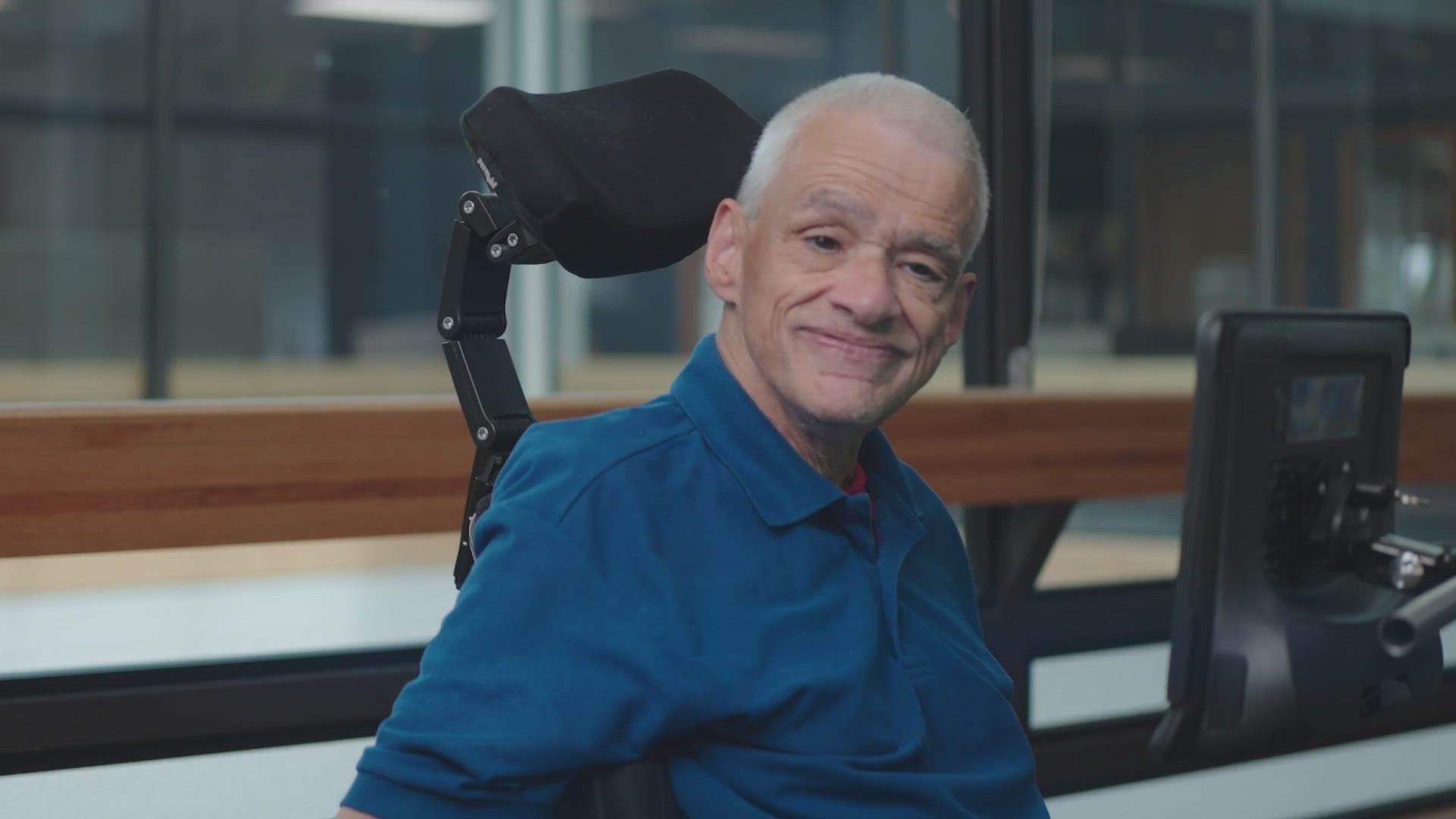SEATTLE — Tim is a Seattle resident who works at Walgreens and loves to travel.
He also lives with cerebral palsy, a group of disorders that affect a person's ability to move and maintain balance and posture. He gets around using a wheelchair and uses a tablet to communicate.
While it might be what people see first, cerebral palsy is not what defines him.
Tim, who requested not to use his last name, gets support from Provail, a Seattle nonprofit that helps people with disabilities fulfill their life choices. The support comes in a variety of forms: employment services, home and lifestyle support and mobility and communication services.
Tori Muzyk, Provail's marketing and event strategist, knows too well how people with disabilities can be ignored in the community. Muzyk's brother has cerebral palsy and she grew up watching how people treated him differently.
"People want to praise Tim for having a job, but guess what? We all have jobs," Muzyk said. "He's a person with a job and shouldn't be singled out because he has cerebral palsy."
According to the World Health Organization, the disability community is the largest minority group in the world, including 42.5 million people living with disabilities in the United States.
Marvin, who also requested not to use his last name, also lives with cerebral palsy, and he agrees with Muzyk. "I hate the word 'normal,'" he said.
Muzyk pursued a career helping others because of her experience with her brother and what she calls the lack of acceptance for people living with disabilities.
“I don’t believe people with disabilities struggle because they are disabled, they struggle because we live in a society that doesn’t allow them to access and engage with all facets of the world the way that you and I do,” she said.
If you are struggling to talk to people with a disability, Muzyk advises you to just ask. “I think people are so scared of saying the wrong thing, or doing the wrong thing, they end up doing nothing at all.”
As far as members of the community and how they would like to be treated, Marvin’s advice is simple: “Treat me like everybody else. The only difference is that I am in a wheelchair.”

